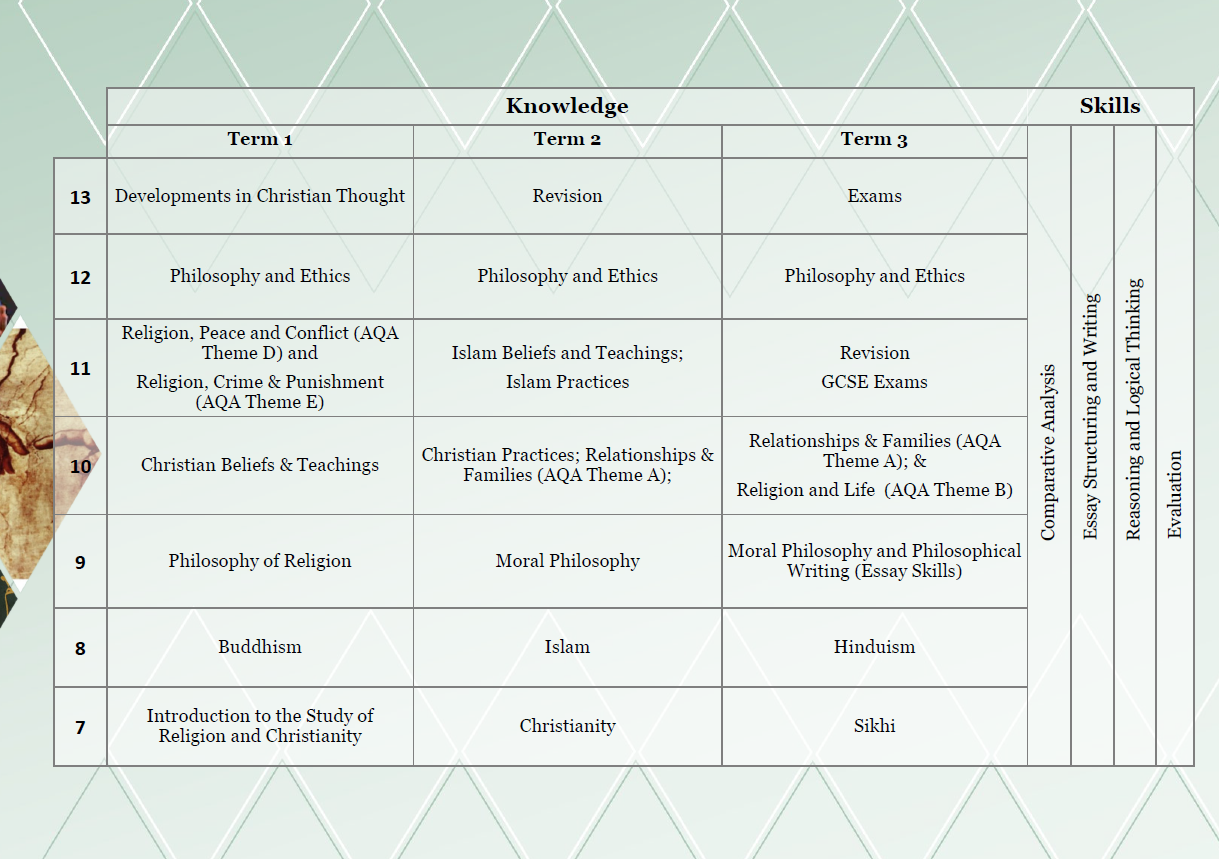Religious Studies at Holyport College
Throughout human civilizations, religious thoughts and ideas permeate, directly or indirectly, all aspects of human lives (education, law, politics, government, ethics, medicine, economics and business, music and drama, architecture, language, etc.). In spite of the Enlightenment, and despite the secularisation of Western societies, around 86% of the world’s population are religious adherents. Hence, religion and religious beliefs remain a formidable force in the public square.
Given that religion, arguably, remains a force for good and evil, the need for pupils to engage with religious and nonreligious worldviews critically, rationally and cognitively cannot be overemphasised. Religious Studies (RS) at Holyport College is, therefore, premised on the need for students to acquire critical, rational, and cognitive understanding of religion rather than seeking to nurture pupils in a specific faith tradition.
Through the deployment of epistemic egalitarianism and epistemic neutrality in the presentation of competing metaphysical truth-claims, that are neither verifiable nor falsifiable, students are challenged to approach worldviews and truth-claims critically, rationally, and cognitively. In doing so, Religious Studies at Holyport College not only aims to develop pupils’ critical thinking and analytical skills, but also seeks to sharpen their investigative, problem solving, debating and essay-writing skills. These enable them to become rationally autonomous individuals who are capable of pursuing their own conception of the good requisite for human flourishing in ordered societies.

